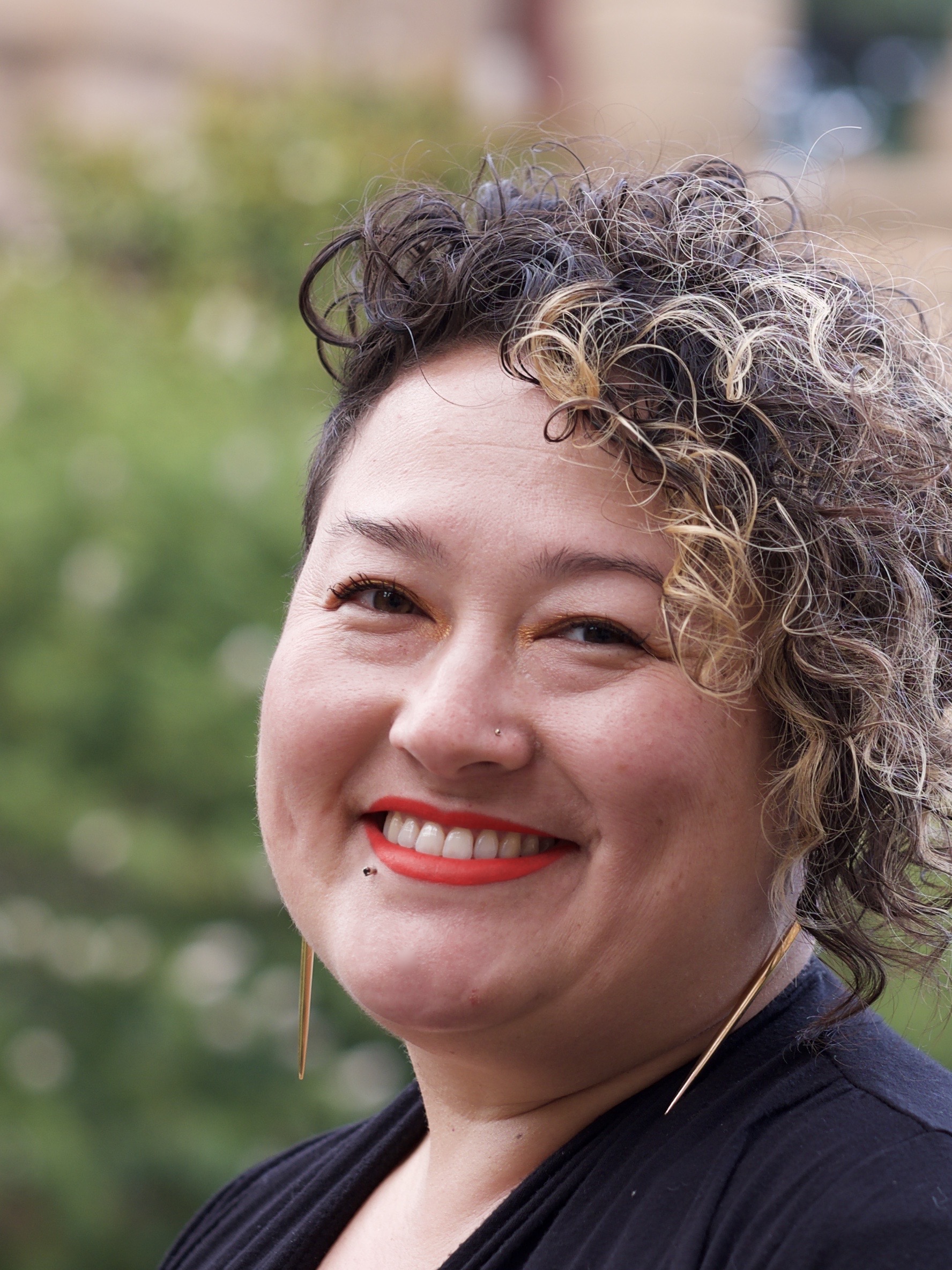Para leer esta entrada de blog en español, presione aquí: La Justicia Linguistica en la Evaluacion.
Authors’ Note: We regret that most links in this entry are only available in English, a disparity that we acknowledge further perpetuates the very issue of linguicism we discuss here. We will do what we can to furnish AEA with analogous Spanish resources, as we encounter or create them.

Greetings from California! We are Ana Paula Noguez Mercado, LL.M., MA — a Mexican lawyer, language justice worker, organizer, and consultant; and Ada Palotai and Susan Ghanbarpour, DrPH, MA — independent research and evaluation consultants focusing on racial equity. We’re sharing some lessons learned and practical tools for evaluators working with historically marginalized communities, to address linguicism by applying a language justice framework.

While the U.S. is linguistically diverse, with over 380 languages used and no official language, English fluency is essentially required to meaningfully participate in most civic, social, and political activities. Over 25 million people speak English “less than very well” (as imperfectly categorized by the U.S. Census), the majority of whom are people of color, immigrants, and refugees.

Yet most evaluations are planned and implemented solely in English.
Many evaluators exclude non-English fluent communities from their work, or include them only in a way that extracts knowledge or some aspects of their experience, while ignoring their language identity and rights. This exclusion overlooks communities’ wisdom, richness of experience, and the resilient and creative approaches they’ve long brought to tackling complex social issues; it also tokenizes and alienates them, compounding their marginalization and targeting. Disregarding language additionally calls into question the validity and generalizability of evaluation findings.
Lesson Learned: Applying a language justice framework is essential to creating more equitable, culturally-responsive, and rigorous evaluations.
Image: “Justicia Linguistica” by A. Samsel, licensed under CC BY-SA 2.0
Language justice simply defined is the right to communicate in the language in which one feels most comfortable, with these three accompanying core principles.
Hot Tips: Here are some practical tools for integrating those language justice principles and creating multilingual spaces in your evaluation practice:
- Uplift the leadership and center the input of community stakeholders, especially those who communicate in non-dominant languages.
- Seek support from and build relationships with language justice practitioners and trained and experienced interpreters/translators, who ideally reflect the demographics of the communities with whom you’re collaborating.
- Reflect on the language privilege of evaluation team members and apply a language equity lens to those you’re inviting to present, lead, and participate in activities.
- Continuously seek feedback, learn from your mistakes (making amends when necessary), and integrate those learnings.
Rad Resources: For more on language justice, check out the Highlander Center’s Interpreting for Social Justice curriculum, as well as Antena and Communities Creating Healthy Environments. Download the presentation and workbook from our AEA 2018 workshop for more tips, and lookout for our upcoming chapter in a special issue of NDE!
The American Evaluation Association is celebrating Latina/o Responsive Evaluation Discourse TIG Week. The contributions all this week to aea365 come from LA RED Topical Interest Group members. Do you have questions, concerns, kudos, or content to extend this aea365 contribution? Please add them in the comments section for this post on the aea365 webpage so that we may enrich our community of practice. Would you like to submit an aea365 Tip? Please send a note of interest to aea365@eval.org. aea365 is sponsored by the American Evaluation Association and provides a Tip-a-Day by and for evaluators.


Haha – thanks for the clarification, Vidhya, that was a little confusing!
Say it, sisters! And let’s not forget all the indigenous languages that are dying thanks to the imposition of Spanish, French, and English throughout the Americas and, indeed, worldwide. So use of English, and even Spanish, is artificial–not “natural.”
Thanks so much, Vidhya! Totally with you on the need to support and nourish language diversity, especially indigenous languages and others that have been targets of colonialism / imperialism.
???
Those were hearts! Came out as question marks–sorry!